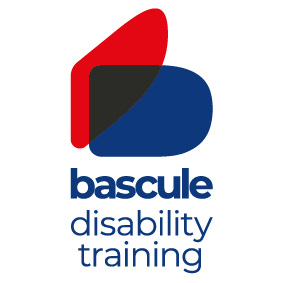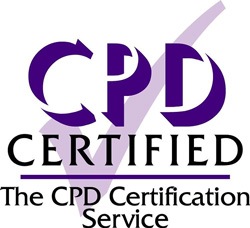Should disability be a secret?

It is estimated that around 80% of disabilities are hidden, which means, at some point in their lives, around 11 million people in the UK will decide whether to disclose their disability.
‘Disclosure’ is something I’m regularly asked to talk about, and a topic I always cover in my online training sessions. One reason for this is that there are huge benefits to encouraging disclosure, not just for the individual, but for the employer too.
Once staff members receive the support they may need, they not only become happier, more productive staff members, but they are also relieved of the stress and pressure that comes from hiding a disability. A more understanding and inclusive environment is also created, and all staff generally feel better supported.
Everyone is a winner.
In fact, a recent US study set out to prove just that and found that employees that disclose are more than twice as likely to feel happy or content at work than those who have not disclosed (65% versus 27%). They are also less likely to regularly feel nervous or anxious (18% versus 40%) or isolated (8% versus 37%).
Now, it’s usually about here that I explain exactly how you can develop a workplace culture that encourages staff to disclose their disabilities- but today I want to talk about the definition of Disclosure itself- and what it might mean to ‘disclose’.
Using the ‘D’ word
Obviously, the development of a workplace culture that is understanding and encourages staff to be open about their disability is the goal- but, to be completely honest, it’s the word ‘disclosure’ and its definition, that I personally have trouble with.
The words we choose can often have hidden meanings or connotations that demonstrate the way we, or society, feels about something. So, when it comes to discussing something as personal as disability, the word disclosure evokes a particular feeling about what the process actually is.
To make my point a little clearer, consider the following two sentences.
The slim, curious man drove an economical car.
The skinny, nosey man, drove a cheap car.
Here the same person is described twice- first positively and then negatively. Essentially, three details have been conveyed about the man, but both offer a very different description, the second taking on a much more negative view.
Now, consider the word Disclosure itself.
In the Oxford English Dictionary, Disclosure is defined as ‘the action of making new or secret information known’. Furthermore, the two examples of ‘how to use the word’ in a sentence in the Cambridge Dictionary are:
“Any public disclosure of this information would be very damaging to the company.”
“The newspaper made damaging disclosures of management incompetence.”
Now, it doesn’t take a genius to recognise the negative connotations of the word in both the definition, and examples of its use.
If I’m honest, as a person with a disability, the word has always bothered me as it implies that something bad is being hidden, that a person has a dark secret and is concealing it, but realistically, if an employer has an open and inclusive workplace culture, secrecy and concealment won’t ever be necessary.
So, you might say, when talking about disability and disclosure, the ‘d’ word sets us on a bad footing from the get-go.
Creating a cultural shift
Whether or not to disclose a hidden disability can be a big decision for a person. Often, people with hidden disabilities may feel that disclosing this information is too personal, and they may be hesitant or worry that colleagues and managers may ask questions or offer unwanted sympathy and attention. They may even fear workplace discrimination and worry that they may be treated differently or stigmatised. Worse still, people may fear that disclosing a disability at the application stage could prevent them from getting the job at all.
Having recently provided disability awareness training to a significantly large organisation, I was shocked to discover that the number of workers with disabilities was as low as 1%. This would lead one to believe that, (given the size of the organisation) it’s much more likely that there are particular issues centred around staff openness and how they feel their disability may be received.
If people are reluctant to talk about having a disability, there’s likely to be a reason- and a lack of disability awareness in the workplace, is usually somewhere at the heart of this problem.
Raising awareness alone encourages people to be confident and comfortable disclosing and discussing their disabilities, helping colleagues to be more understanding, whilst also helping people with disabilities to gain the support they need to improve their working lives. To give an example, when I train larger groups of staff and ask if there is anyone present that has a disability, very often someone will raise their hand- to the great surprise of their colleagues. I always find that satisfying as it says to me that, just by properly discussing disability in a single training session, people are already feeling more comfortable talking about and even revealing their own. This is demonstrated clearly here in Bascule’s case study featuring Critical Software.
So, maybe it’s time we reassessed the term, dropped the negative connotations, and subsequently, altered our approach to what it is we call ‘disclosure’?
Maybe we begin by simply talking openly about disability, and truly raising awareness by further developing inclusivity in our workplaces and gaining a clearer understanding of disability itself.
Maybe we should simply ask how someone can bring their best self to work instead?



